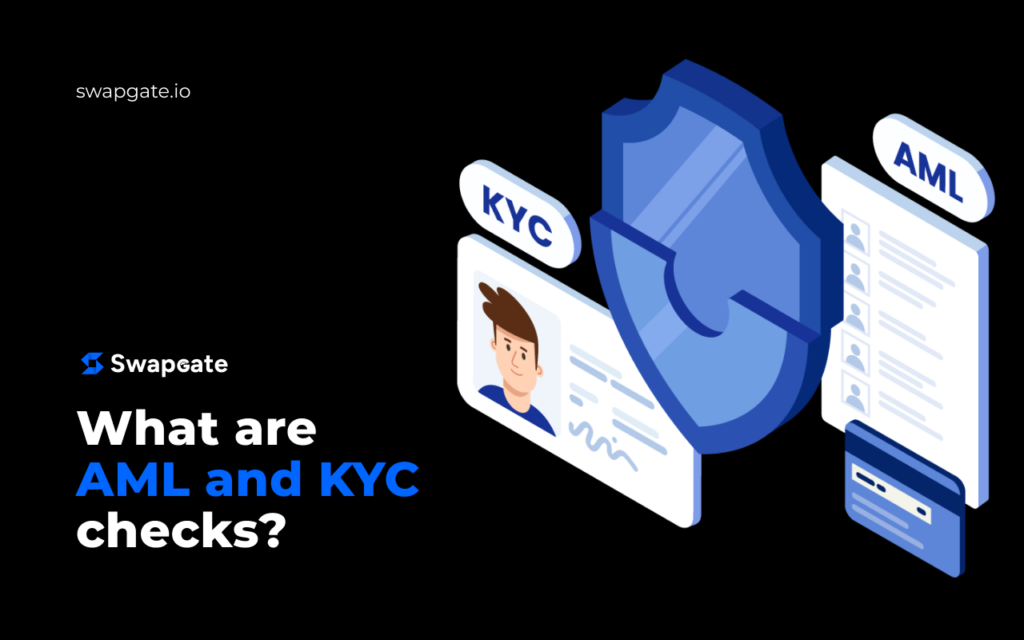
Interest in cryptocurrencies has grown significantly in recent years, not only among traders and investors but also among regulators. To prevent fraud and illegal activities within the blockchain, most platforms now implement AML checks (Anti-Money Laundering) and KYC (Know Your Customer) procedures.
In this article, we will explain in detail what AML and KYC checks are, the documents needed to pass them, and how these checks relate to security.
How AML Checks Work and Why They Are Important
AML checks are a specialized procedure aimed at preventing systems from being used for money laundering or terrorist financing. AML has long been used in traditional financial systems worldwide and has now been adopted in cryptocurrency operations.
Since AML is focused on detecting suspicious transactions, it includes several stages:
- Monitoring of transactions: Financial institutions track client transactions using special algorithms to identify unusual patterns indicative of illegal activity.
- Mandatory client identification: This prevents transactions from anonymous or fake accounts.
- Reporting violations: When suspicious activities like money laundering or terrorist financing are detected, reports are sent to regulatory authorities.
AML and KYC checks are crucial for preventing the use of cryptocurrencies for illegal purposes. Some users opt for an AML wallet to simplify regulatory compliance.
How to Pass KYC Checks
KYC procedures are used by companies to verify and identify their clients, ensuring that the individual is legitimate. In the cryptocurrency industry, KYC works similarly to traditional financial institutions. Companies providing exchange or cryptocurrency services require users to provide personal data. To pass KYC, users need to provide:
- Full name;
- Date of birth;
- Residential address;
- Passport details or other identity verification;
- A selfie with the document for identity confirmation.
KYC helps services reduce the risk of fraud and comply with legal standards.
Documents Required for AML and KYC Checks
To pass AML and KYC checks, personal details and documents are required, such as:
- A passport, national ID, or driver’s license;
- A rental agreement, utility bill, or bank statement;
- In some cases, a tax return or proof of income may be required.
The documents required vary based on factors such as jurisdiction. For example, the EU and the US typically have stricter requirements compared to other regions. Additionally, individual clients generally need to provide fewer documents compared to corporate clients, who might need to disclose financial statements and beneficiaries. Large cryptocurrency transactions usually trigger more stringent checks, while smaller transactions may face less scrutiny.
How to Exchange Bitcoin and Other Cryptocurrencies on SwapGate
SwapGate offers a simple platform for exchanging cryptocurrencies without the need for AML or KYC checks. This makes it appealing to users who prioritize anonymity and wish to avoid delays.
Despite the lack of KYC checks, SwapGate takes AML seriously. The platform uses automated systems to monitor transactions, detect suspicious transfers, and prevent illegal activities. SwapGate complies with international regulatory requirements and cooperates with law enforcement when necessary, while still maintaining a balance between client anonymity and legal compliance.
The exchange process on SwapGate involves three simple steps:
- Visit the SwapGate website and choose the cryptocurrencies you wish to exchange (e.g., Bitcoin to Ether).
- Enter your wallet address for the cryptocurrency you wish to receive. Since SwapGate doesn’t require registration, this step is straightforward.
- Confirm the transaction details and proceed with the transaction. Once confirmed, the exchange is completed in minutes.
SwapGate’s internal AML checks ensure a secure environment for all users, reducing the risk of illegal activity on the platform.
Conclusion
AML and KYC checks have become an important part of the cryptocurrency industry. They ensure internal security, protect platforms from illegal activities, and help companies comply with legal requirements. However, not all platforms mandate KYC, allowing users to maintain privacy and expedite cryptocurrency exchanges.
SwapGate offers a convenient and secure method for users seeking quick, anonymous cryptocurrency exchanges without the hassle of KYC, while still being responsible for AML. This makes the platform attractive to those looking for fast, secure, and private crypto transactions.